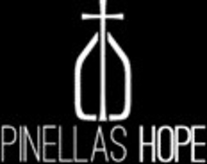Group Psychotherapy and Psycho-Educational Interventions at Pinellas Hope
Independent Life Skills Training: How to survive living alone, How to manage my budget to insure my rent transportation and nutrition needs are met at: http://www.coping.us/pinellashopeprograms/livingskillstraining.html
SEA’s Program: A clinician led 12 Step Program focused on skills needed to address the addictive, impulsive, inappropriate, and unhealthy behaviors which can lead to relapse and recidivism so as to improve the self-esteem of the participants in a productive manner (Utilizing the SEA’s Program at: http://www.coping.us/seasmanual.html
Physical Health Care Prevention Training: Maintaining Healthy Exercise, Diet, and Sleep habits: (Utilizing Tools for a Balanced Lifestyle: at: http://www.coping.us/balancedlifestyle/strategiesforsuccess.html)
Wellness Training: How to be relaxed in times of stress; Mindfulness Training; Meditation Training; Yoga Training; Art Therapy, Gardening Therapy; Animal (Utilizing the Holistic Approaches identified at: http://www.coping.us/opioidheroinepidemic/holisticapproachestotreatment.html)
Physical Health Management Training: Understanding any chronic health problems they might have such as Diabetes; Asthma; High Blood Pressure; Cardiac Health problems; Arthritis, or other physical disabling conditions; Understanding the types of medications given them by their attending physicians, psychiatrists and ARNP’s and the importance of following the directions in taking and maintaining the use of these medications in a healthy manner (Utilizing the Integrated Medicine Approaches and Strategies for Success in Health Management available at: http://www.coping.us/behavioralmedicine/integratedprimarycaretools.html)
Interpersonal Skill Training: How to avoid getting into arguments and confrontations; How relate to people on a one to one basis; How to establish and retain friendships or collegial relationships with others (Utilizing the Tools for Coping Series at: http://www.coping.us/toolsforcopingseries.html )
